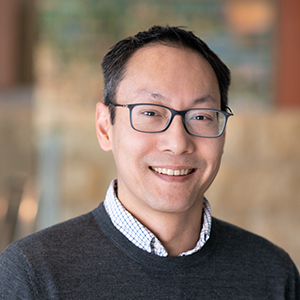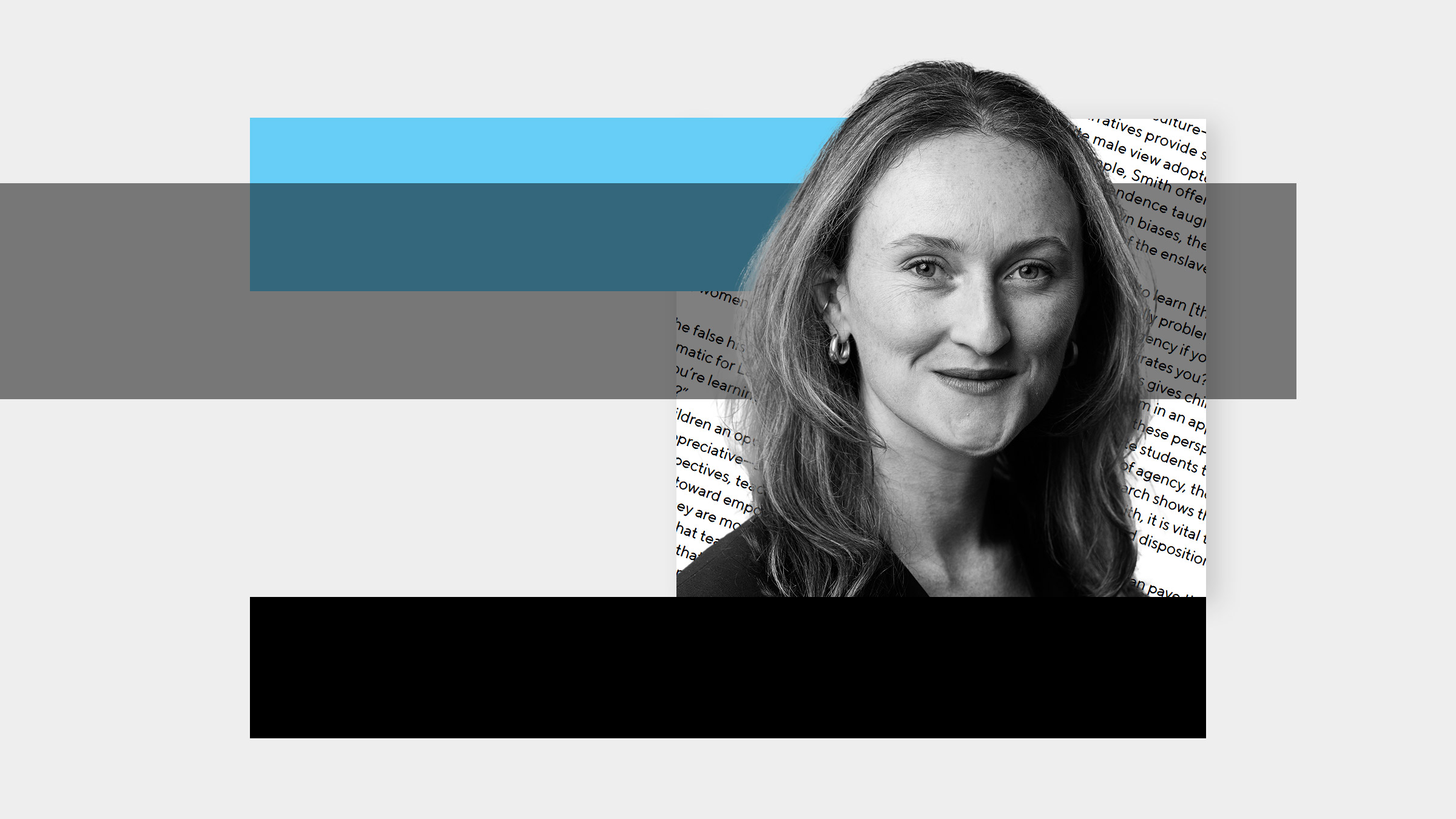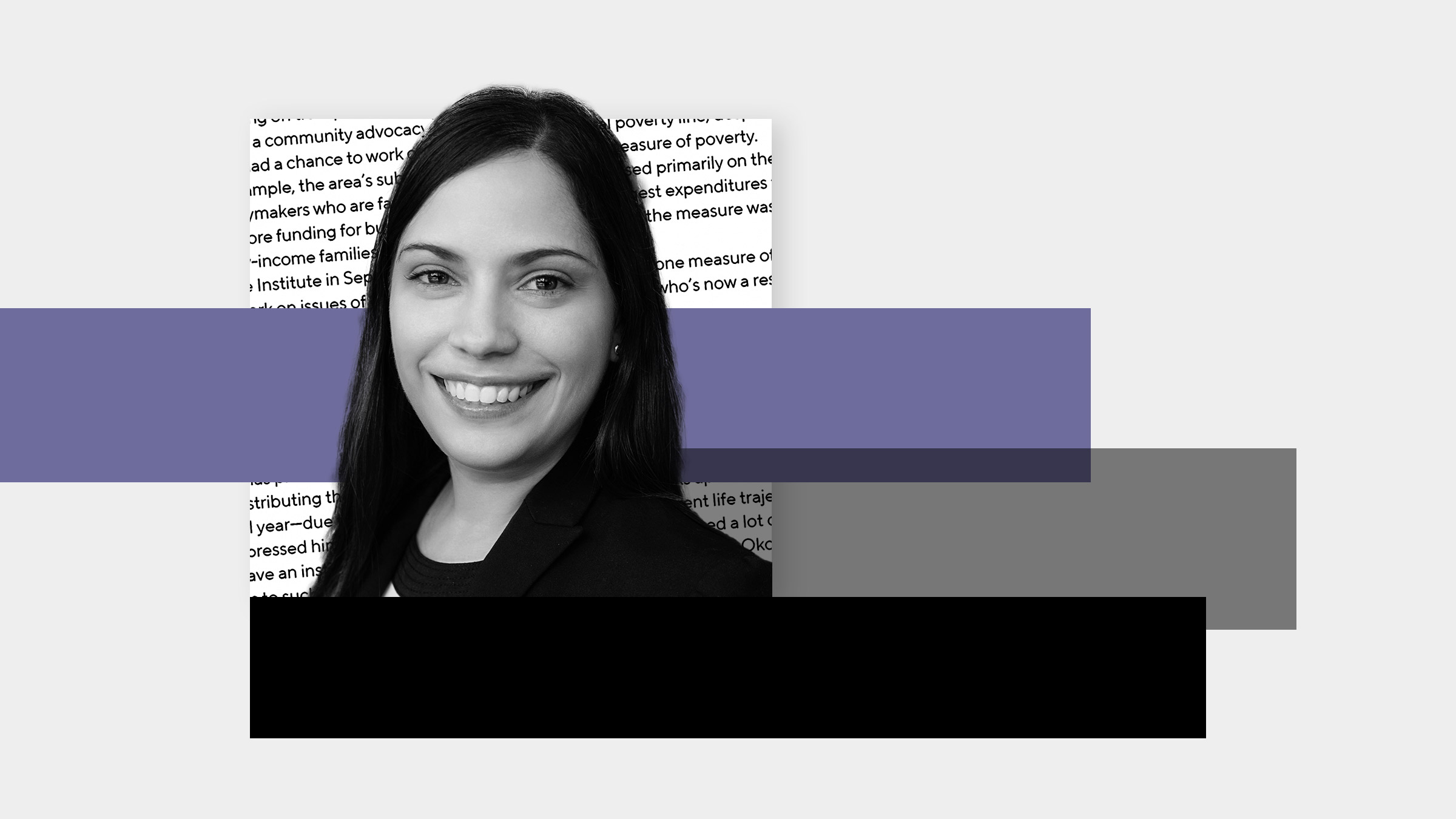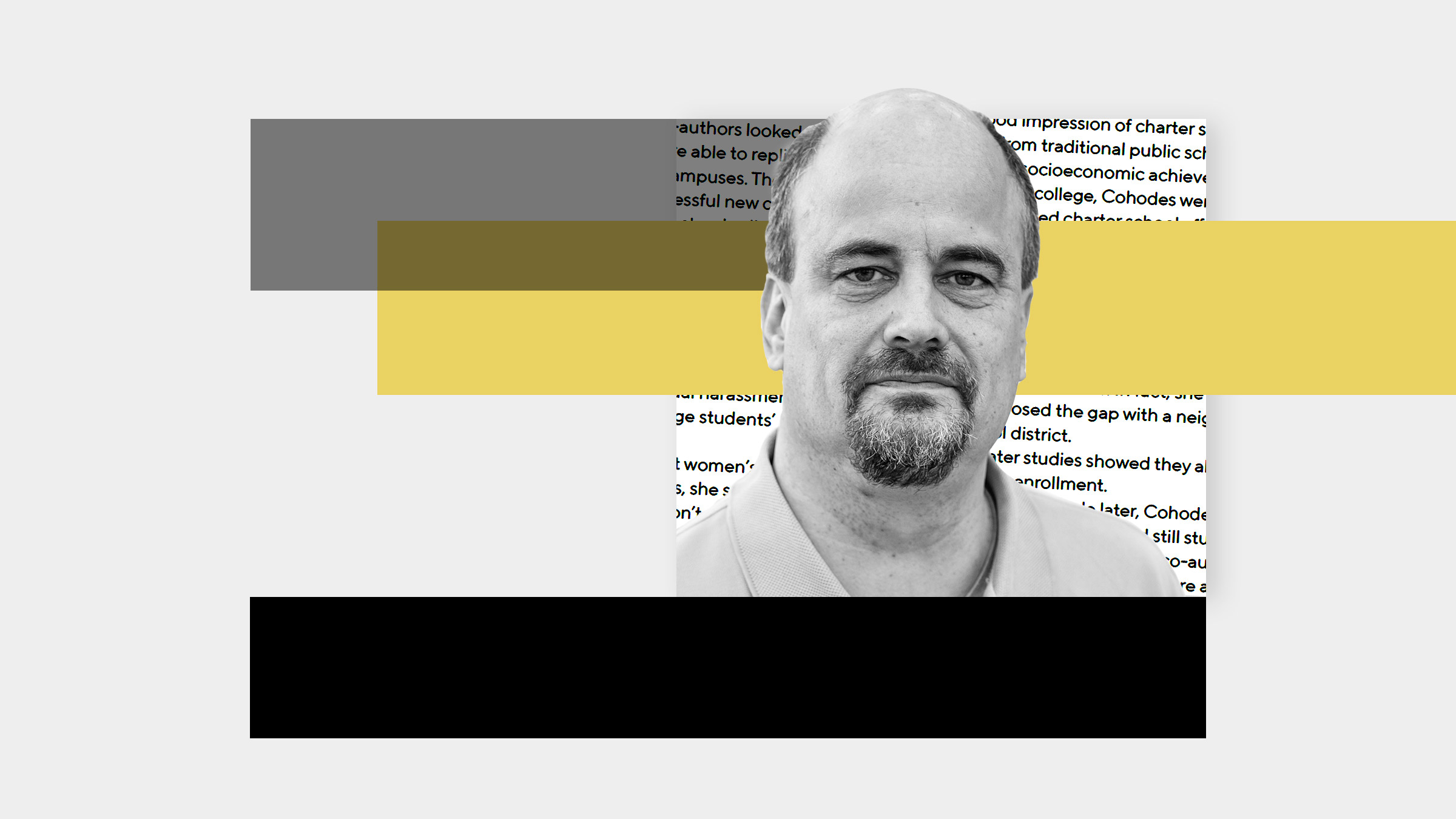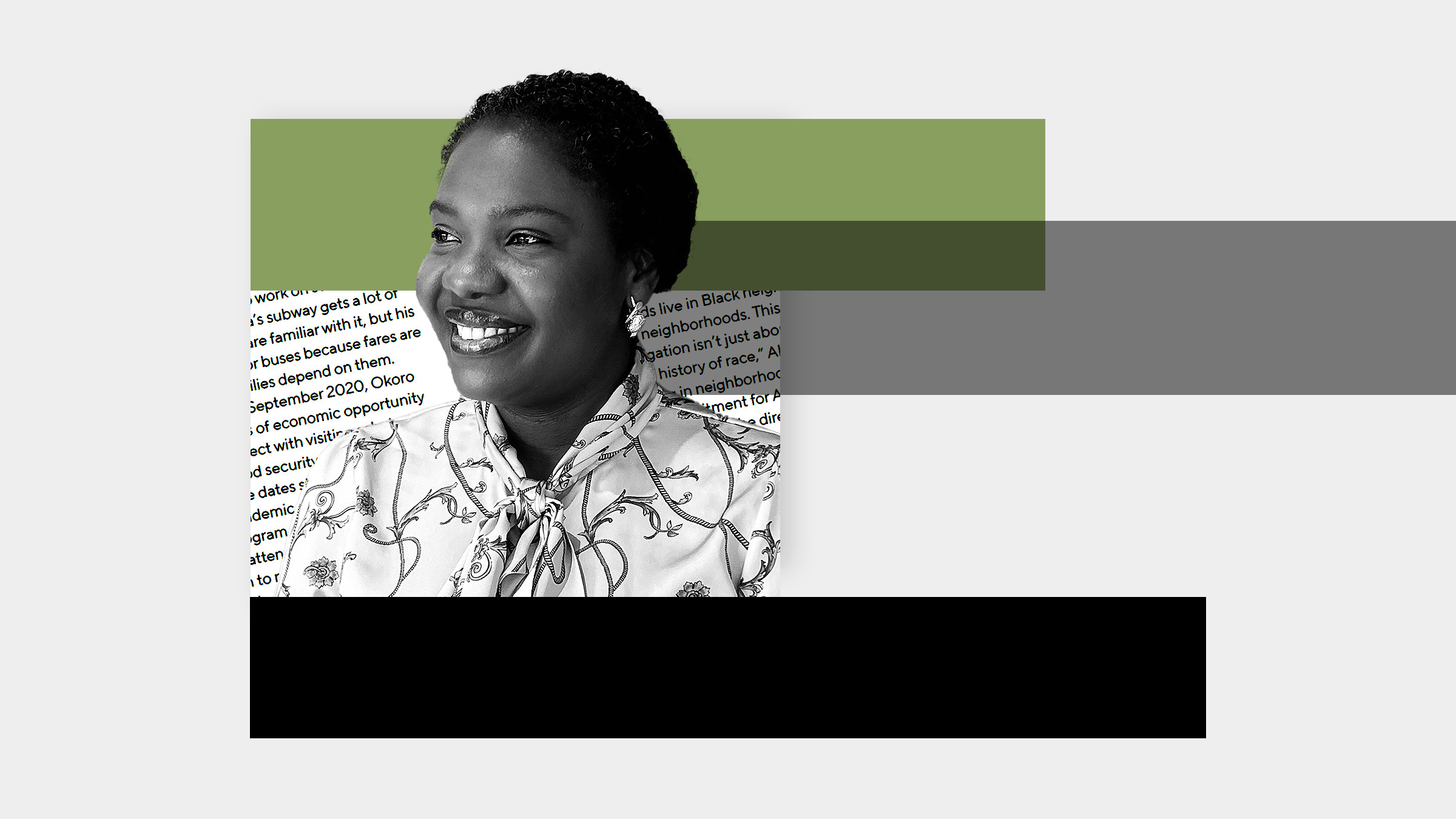The research community at the Institute includes visiting scholars, consultants, economists, research analysts, and research assistants. These scholars bring varied backgrounds, interests, and expertise to research that deepens our understanding of economic opportunity and inclusion as well as policies that work to improve both.
Growing up in a neighborhood where people of different means mingled, Katherine Richard could see what life was like for families that weren’t middle class like hers.
There were classmates who didn’t have much to eat at home, classmates in public housing, classmates struggling with tuition. “I have a lot of memories of these sorts of things,” she said.
That awareness of economic inequality followed her into her professional life. As an economist, Richard researches the effects of aid programs aimed at lower-income people, such as welfare benefits and COVID-19 payments.
A recent study she produced with a co-author focused on penalties Michigan imposes on welfare recipients who don’t fulfill work requirements. The study found that, after the state cut off benefits, recipients were less likely to fulfill requirements to regain those benefits.
That may be because housing, transportation, and child care are prerequisites for steady employment, and it’s harder to pay for those things when people lose benefits, Richard said. Many survive by cobbling together support from friends and family, charity, and various odd jobs.
“If your goal is to get more people employed, then making penalties more severe [than they are currently] is not going to help people do that,” Richard said.
In another study, she and co-authors examined a cash assistance program run by a private charity for low-income families during the COVID-19 pandemic. They found the amount needed to reduce hardship was likely much more than the $1,000 one-time payment provided by the program.
Families surveyed were overjoyed to be able to repair cars and pay for other necessities, but most struggled as much as those who received no cash, Richard said. “You’re answering a survey about how you would rate your hardship conditions: ‘Well, things are bad. They’re still bad.’”
Richard became an economist because she enjoys math and analyzing policies. “I really like thinking about policy systems. What are the rules we as a society have set down about how we organize ourselves?”
That gives her a valuable tool to address how rules can perpetuate economic inequality.
It’s important to understand how these systems work, she said. “Then maybe we know what the levers are, and we can focus in on those levers and who has control over them.”
This article is featured in the Fall 2025 issue of For All, the magazine of the Opportunity & Inclusive Growth Institute
More scholar spotlights from this issue
Jacelly Cespedes—Lessons in household finance
John Bailey Jones—Bringing economic rigor to life’s “fuzzy stuff”
Yewande Olapade—A fascination with money on the move
Tu-Uyen Tran is the senior writer in the Minneapolis Fed’s Public Affairs department. He specializes in deeply reported, data-driven articles. Before joining the Bank in 2018, Tu-Uyen was an editor and reporter in Fargo, Grand Forks, and Seattle.

